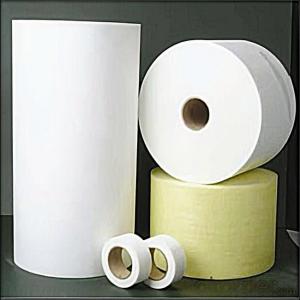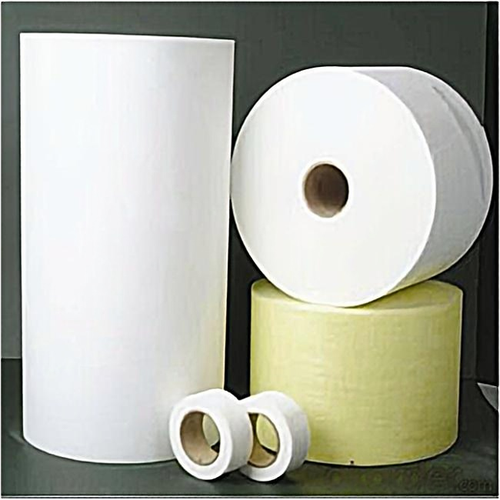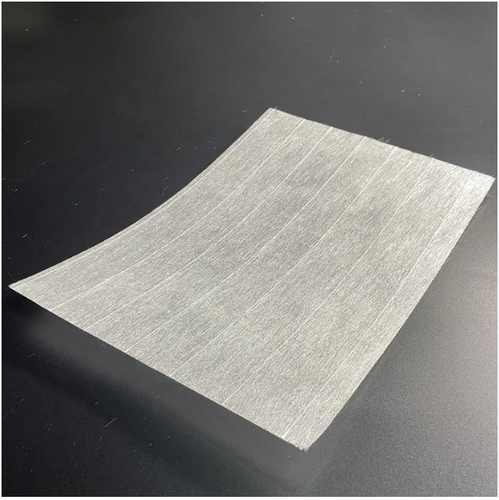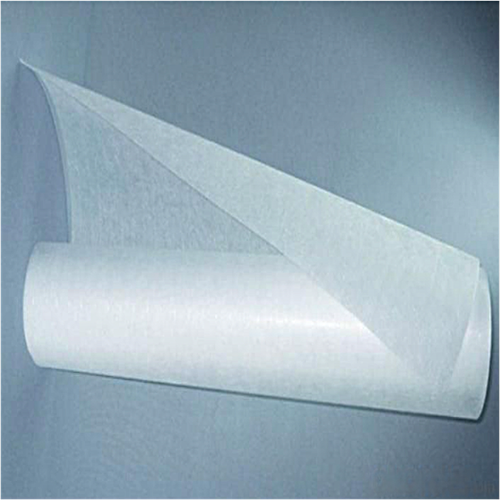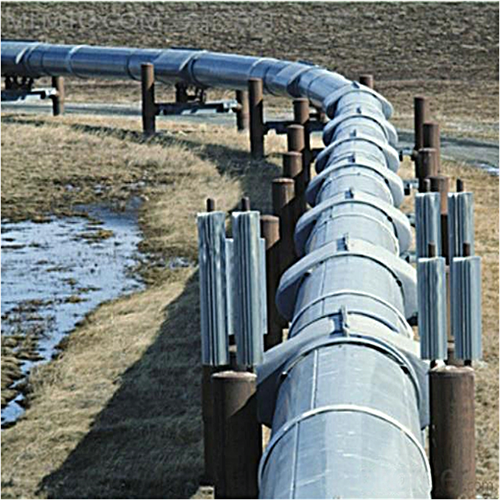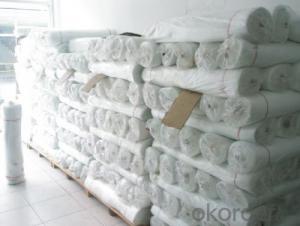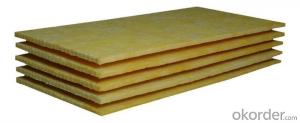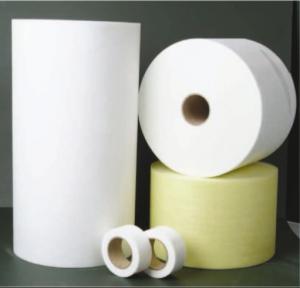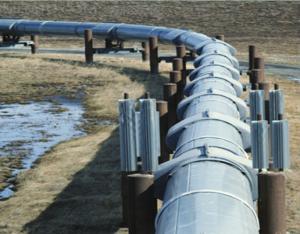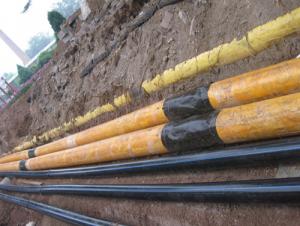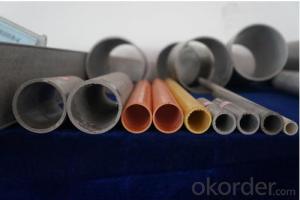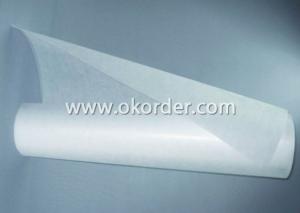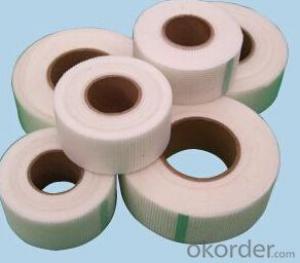Fiberglass Inner Pipe Wrap Tissue for Pipeline Anti corrosion
- Loading Port:
- China main port
- Payment Terms:
- TT or LC
- Min Order Qty:
- 1000 kg
- Supply Capability:
- 1000000 kg/month
OKorder Service Pledge
OKorder Financial Service
You Might Also Like
Brief Introduction: |
Fiber glass pipe wrap tissue is mainly used as anti-corrosion wrapping material for steel pipelines buried underground for oil or gas transportation. It is characterized by high tensile strength, good flexibility, even thickness, solvent & moisture resistance, anti-corrosion and flame retardant.It is well compatible with impregnation bitumen or coal tar enamel the oil of gas pipelines wrapped by Pipe wrapping mat pre-impregnated with bitumen or coal tar enamel acquire capabilities against leakage and aggressivemedia in the environment so that the cost for maintenance and replacement can be reduced significantly and the life time of pile-line may be prolonged up to 50-60 years authoritative tests have proven that the technical target of wrapping mat series can all meet or surpass the technical specification stated in SY/T0079, the oil and gas industry standard of the people's republic of china and meet the requirement in the specification of AWWA C 203 AS WELL this mat is an ideal base material as inner wrap or outer wrap or outer wrap impregnated by bitumen of coal tar enamel. |
Feature: |
Excellent fiber distribution; Excellent tensile strength; Good tear strength; Good flexibility. Application: Fiberglass pipe wrap tissue is mainly used as anti-corrosion wrapping material for steel pipelines buried underground for oil or gas transportation. |
Technical Data Sheet: |

|
Package:
Each roll is wrapped with plastic film, 40 rolls are put into 1x40FCL with wooden pallets. If pallets are not needed, we can load 44 rolls in 1x40HQ. Based on quantity, special package is available.
- Q: Can fiberglass mat tissue be used for soundproofing?
- Yes, fiberglass mat tissue can be used for soundproofing. Fiberglass is known for its excellent sound absorption properties. When used as a mat or tissue, it can effectively reduce noise transmission by absorbing and dampening sound waves. The porous nature of fiberglass allows it to trap and dissipate sound energy, making it an ideal material for soundproofing applications. Additionally, fiberglass is lightweight, flexible, and easy to install, making it a practical choice for soundproofing projects.
- Q: How does fiberglass mat tissue perform in terms of chemical resistance?
- Fiberglass mat tissue generally exhibits good chemical resistance due to the inherent properties of fiberglass, making it suitable for various applications where exposure to chemicals is a concern.
- Q: How does fiberglass mat tissue perform in high temperatures?
- Fiberglass mat tissue performs well in high temperatures due to its inherent heat resistance properties. The mat is typically made from glass fibers that are woven together, creating a strong and durable material. These glass fibers have a high melting point, allowing the fiberglass mat tissue to withstand elevated temperatures without deforming or losing its structural integrity. When exposed to high temperatures, fiberglass mat tissue does not shrink, warp, or become brittle like other materials might. It retains its dimensional stability and mechanical strength, making it suitable for various applications in industries such as automotive, aerospace, construction, and insulation. Additionally, fiberglass mat tissue acts as a thermal insulator, offering protection against heat transfer. It can effectively resist heat conduction and radiation, helping to maintain the desired temperature in a given environment or prevent heat damage to surrounding components. Furthermore, fiberglass mat tissue is non-combustible, meaning it does not burn or produce toxic gases when exposed to fire. This makes it a reliable choice for applications that require fire resistance, such as fireproofing insulation or protective barriers. In summary, fiberglass mat tissue performs exceptionally well in high temperatures. Its heat resistance, dimensional stability, mechanical strength, thermal insulation properties, and non-combustible nature make it an excellent material for use in demanding environments where elevated temperatures are present.
- Q: Can fiberglass mat tissue be used for waterproofing?
- Yes, fiberglass mat tissue can be used for waterproofing. It is commonly used as a reinforcement material in waterproofing systems, such as for roofs, walls, and foundations. The fiberglass mat tissue is impervious to water and helps to provide an additional layer of protection against moisture intrusion.
- Q: What are the applications of fiberglass mat tissue?
- Fiberglass mat tissue is commonly used in various applications, including but not limited to, the construction industry, automotive manufacturing, and the production of composite materials. It is used as a reinforcement material in the construction of walls, roofs, and floors, providing strength and durability. In the automotive industry, fiberglass mat tissue is used for sound insulation and as a reinforcement material in the production of car parts. Additionally, it is widely utilized in the manufacturing of composite materials, such as fiberglass-reinforced plastics, due to its high strength-to-weight ratio and excellent corrosion resistance.
- Q: Can fiberglass mat tissue be used for electrical enclosures?
- No, fiberglass mat tissue is not typically used for electrical enclosures. Electrical enclosures are designed to protect electrical equipment from outside elements like dust, moisture, and physical damage. They are usually made from materials that provide insulation and have high mechanical strength, such as sheet metal, plastic, or fiberglass reinforced plastic (FRP). While fiberglass mat tissue can provide some level of mechanical strength and insulation, it is not commonly used as the primary material for electrical enclosures due to its limited durability and lower resistance to moisture and impact.
- Q: How does fiberglass mat tissue enhance the strength of composite materials?
- Fiberglass mat tissue enhances the strength of composite materials by providing reinforcement and stability. It acts as a structural layer that distributes and transfers loads throughout the composite, increasing its overall strength and stiffness. The fiberglass mat tissue's high tensile strength and excellent dimensional stability help prevent cracking, delamination, and deformation in the composite structure, resulting in improved durability and performance.
- Q: Can fiberglass mat tissue be used for composite panel manufacturing?
- Composite panels can be manufactured using fiberglass mat tissue, a thin and lightweight material composed of randomly oriented fiberglass strands bonded with a binder. This material is commonly employed as a reinforcement in composite manufacturing processes. In composite panel manufacturing, fiberglass mat tissue is typically mixed with other materials such as resin and a core material. This combination results in a robust and long-lasting panel. The mat tissue reinforces the panel, ensuring the distribution of loads and preventing cracking or delamination. Fiberglass mat tissue is renowned for its exceptional tensile strength, dimensional stability, and resistance to chemicals. These qualities make it highly suitable for use in composite panel manufacturing across various industries, including construction, transportation, marine, and aerospace. In summary, fiberglass mat tissue is a versatile and efficient material that can be effectively utilized in the production of composite panels. Its properties and characteristics make it a dependable choice for creating sturdy and enduring panels for diverse applications.
- Q: Is fiberglass mat tissue suitable for insulation in HVAC ducts?
- Fiberglass mat tissue can be used to insulate HVAC ducts, as it possesses excellent thermal and acoustic properties. It is a widely utilized material for insulation, thanks to its ability to endure high temperatures and resist moisture. This makes it perfect for applications in ductwork. By reducing heat transfer and preventing condensation buildup, fiberglass mat tissue provides effective insulation for the ducts. Moreover, it is lightweight, simple to install, and has a lengthy lifespan. Consequently, it is a cost-effective option for HVAC insulation. In conclusion, fiberglass mat tissue is a dependable and appropriate choice for insulating HVAC ducts.
- Q: Can fiberglass mat tissue be used for repairing fiberglass canoes?
- Yes, fiberglass mat tissue can be used for repairing fiberglass canoes. It is commonly used to reinforce and strengthen the damaged areas of the canoe by providing additional structural support.
Send your message to us
Fiberglass Inner Pipe Wrap Tissue for Pipeline Anti corrosion
- Loading Port:
- China main port
- Payment Terms:
- TT or LC
- Min Order Qty:
- 1000 kg
- Supply Capability:
- 1000000 kg/month
OKorder Service Pledge
OKorder Financial Service
Similar products
Hot products
Hot Searches
Related keywords
